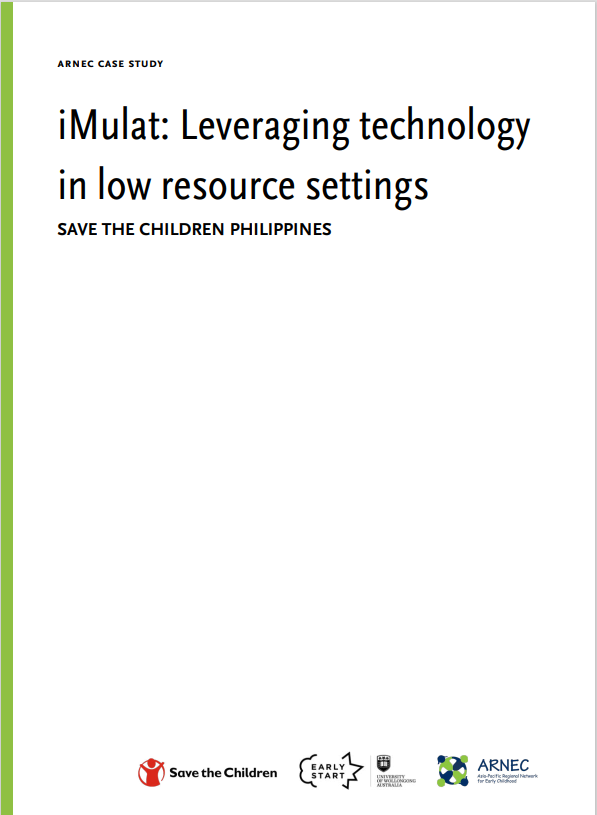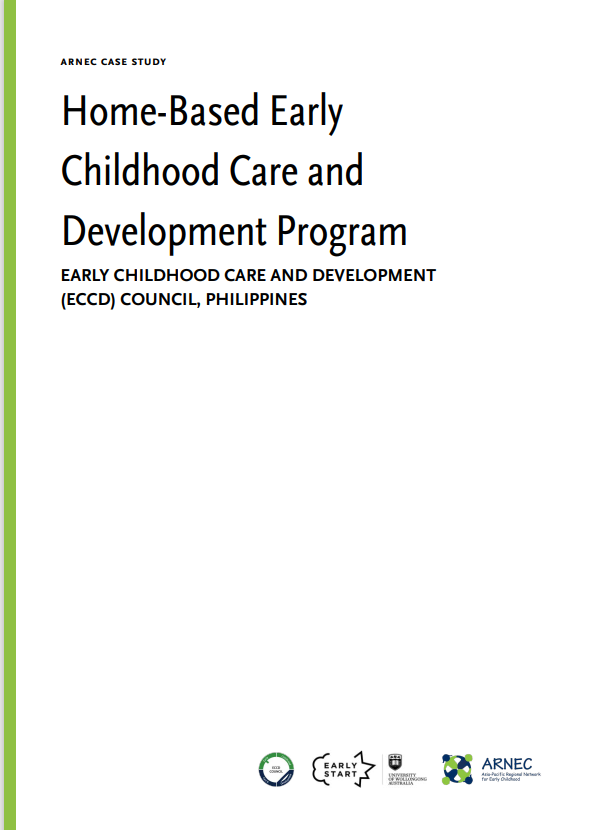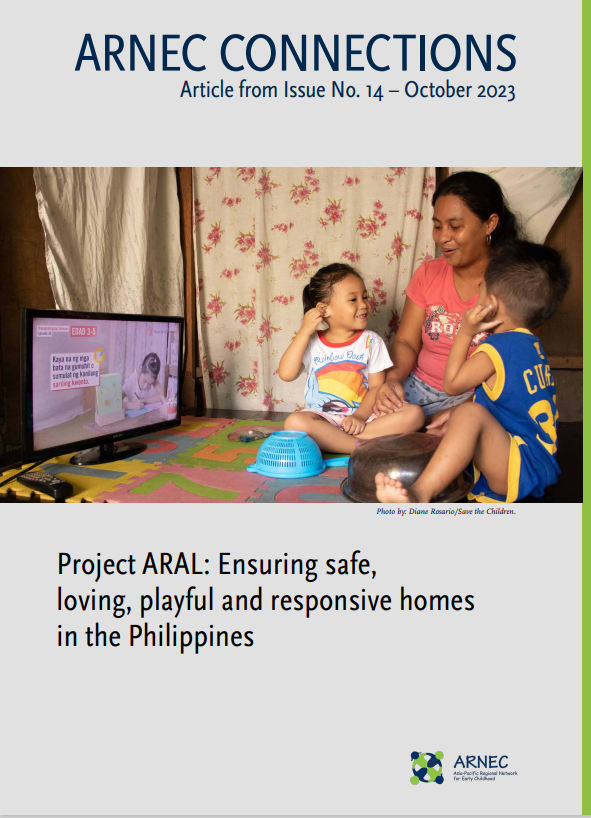
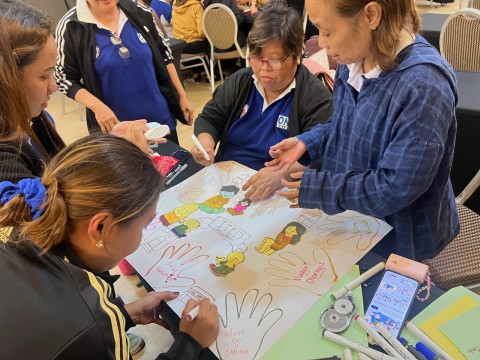
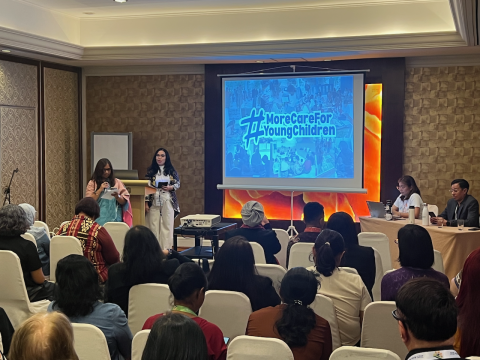
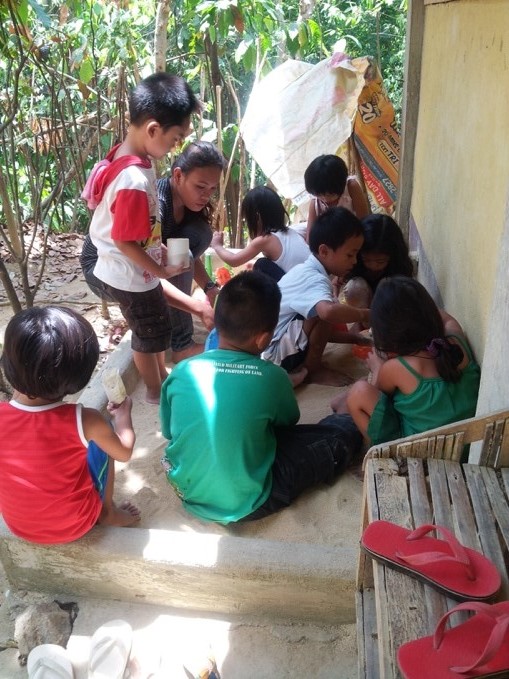
In 2000, the Philippines’ Republic Act No. 8980 called for a comprehensive ECCD policy and national system. The focus on ECCD has been advanced since then with the enactment of the Republic Act No. 10410 (or the Early Years Act of 2013) to recognize ages 0-8 as crucial developmental stages. The 0-4 age group is under the responsibility of the ECCD Council and the 5-8 age group is under the purview of the Department of Education.
The national ECCE system is a comprehensive follow-up plan on policy expectations which covers health, nutrition, early education and social protection for children from birth to age 4.
In 2008, the Early Learning Development Standards were developed by the ECCE. It forms the basis for the National Early Learning Framework and the National Early Learning Curriculum Learning Resource Packages.
Stay tuned as we'll be publishing the updated Country Profile soon.
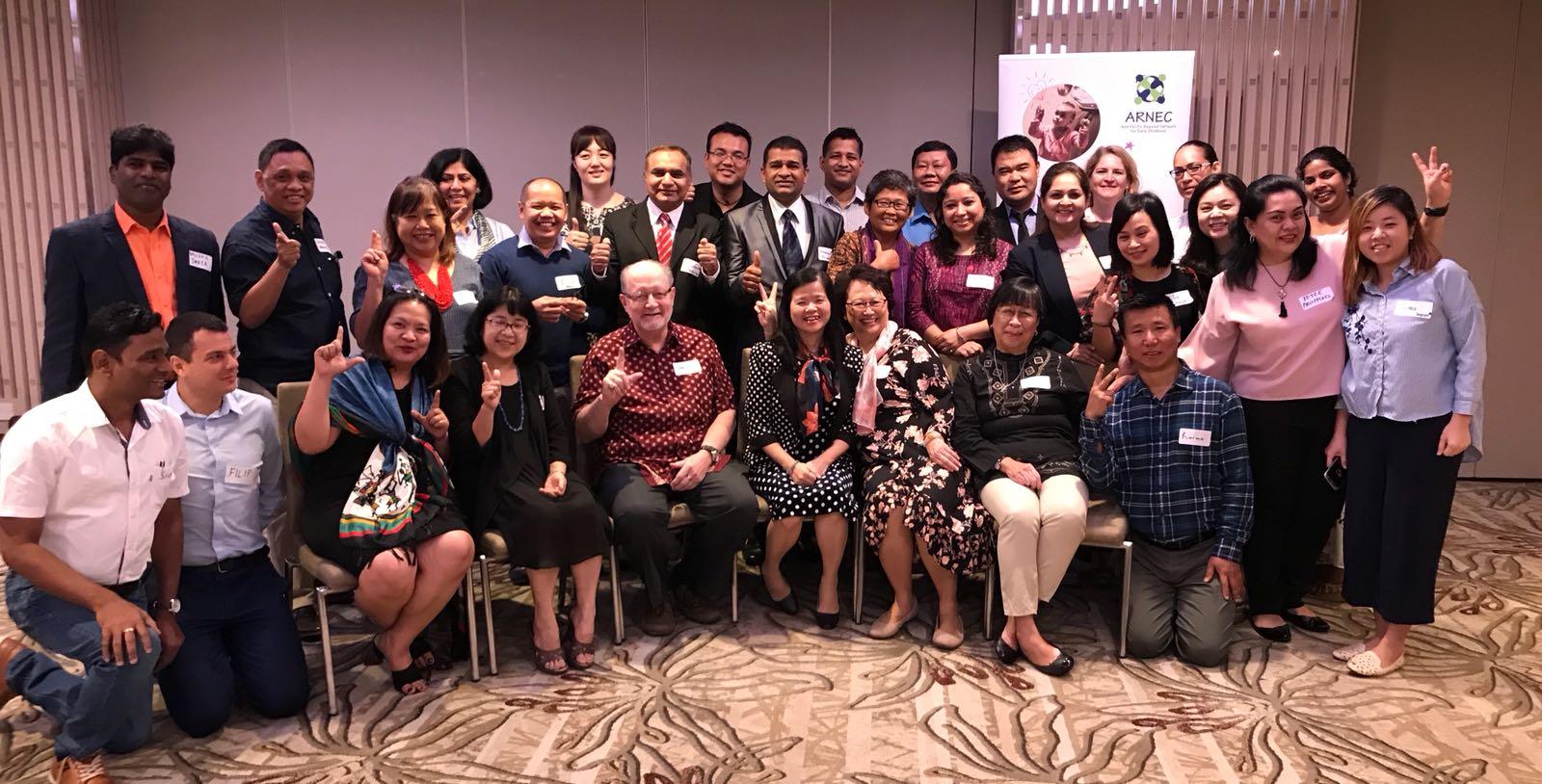
1. Community-based approach to reduce malnutrition (by Save the Children)
Noteworthy aspects:
2. Healthy Start home-visiting program (by Consuelo Foundation)
Noteworthy aspects:
3. Early childhood teacher education program (ECTEP)
Noteworthy aspects:
Lorem ipsum dolor sit amet, consectetur adipiscing elit. Aliquam at porttitor sem. Aliquam erat volutpat. Donec placerat nisl magna, et faucibus arcu condimentum sed.
